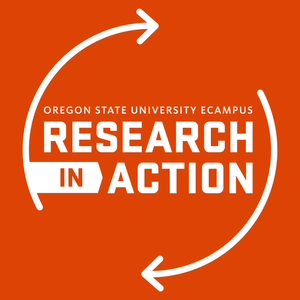
Ep. 12: Permanent Connections are Vital for a Child’s Success
05/26/21 • 33 min
We all need the people in our lives who know us and care about us, who celebrate our successes and comfort us in hard times. These are the people we call when we get a new job, lock our keys in the car or are facing a big decision.
Permanent, supportive connections are especially important in childhood, when parents, coaches, mentors and teachers help children develop their identity and values, help them know who they are, develop their strengths and set goals in their life.
For a long time, however, social services didn’t recognize the importance of permanency for the children in their care. In this podcast, Meredith Rapoza, division director of permanency and latency services for JRI, and Rachel Arruda, JRI division director of Family Networks and JRI’s service navigator, talk about how social service professionals have come to recognize the importance of permanency in the development and ultimate success of children. They discuss how JRI is ensuring that all the children in its care develop at least one permanent connection.
We’re also joined by Jason Galli, who entered the social services system from birth, and found permanency for himself despite being moved from foster home to foster home and facility to facility. Now a husband, father and someone dedicated to helping children and youth as a partner with JRI, he offers his story of incredible resilience.
For more information about permanency and how you can become a permanent connection to a child, please visit jri.org/lifelongconnections.
We all need the people in our lives who know us and care about us, who celebrate our successes and comfort us in hard times. These are the people we call when we get a new job, lock our keys in the car or are facing a big decision.
Permanent, supportive connections are especially important in childhood, when parents, coaches, mentors and teachers help children develop their identity and values, help them know who they are, develop their strengths and set goals in their life.
For a long time, however, social services didn’t recognize the importance of permanency for the children in their care. In this podcast, Meredith Rapoza, division director of permanency and latency services for JRI, and Rachel Arruda, JRI division director of Family Networks and JRI’s service navigator, talk about how social service professionals have come to recognize the importance of permanency in the development and ultimate success of children. They discuss how JRI is ensuring that all the children in its care develop at least one permanent connection.
We’re also joined by Jason Galli, who entered the social services system from birth, and found permanency for himself despite being moved from foster home to foster home and facility to facility. Now a husband, father and someone dedicated to helping children and youth as a partner with JRI, he offers his story of incredible resilience.
For more information about permanency and how you can become a permanent connection to a child, please visit jri.org/lifelongconnections.
Previous Episode

Ep. 11: Children's Advocacy Center
Between 700 and 800 cases of child sexual abuse are referred on average each year to the Children’s Advocacy Center of Bristol County, which provides treatment and support to victims and their families.
But in the past year, the number of referrals has dropped to about 250 cases. That isn’t necessarily good news, however, as it reflects the impact of the COVID-19 pandemic, which saw lengthy periods when schools were closed, and athletic teams and other activities were suspended. As a result, people who are required under the law to report suspected cases of child sexual assault have had only irregular contact with children they normally see, which often means that cases go unreported.
CAC mental health clinicians Brittannie Moroz and Jillian Allen shared CDC data stating one in four girls and one in 13 boys under age 18 suffer trauma as a result of child sexual abuse. Those children are some of the approximately 75,000 Bristol County children age 16 and younger believed to have suffered trauma from abuse, violence, addiction in their homes or other causes of childhood trauma.
Depending on the age of the child, trauma often manifests itself in both physical and emotional symptoms, from trouble sleeping to anger and acting out, anxiety and depression, or changes in appearance or behavior. The CAC helps by offering not only traditional talk therapy but also other physical forms of treatment that can help children relieve physical, emotional and psychological symptoms associated with trauma by giving them tools to manage those symptoms. Soon, they hope to also offer trauma-sensitive yoga as well.
“Every child experiences trauma so differently and every child is so unique,” said Allen. “You may have a child who is really withdrawn and isolated...as opposed to a child who is angry and lashing out.”
The CAC works with teachers to help them recognize signs of potential abuse, something more and more schools are building into teacher training programs.
“Traumatic stress symptoms are actually very treatable,” said Moroz. Treatment begins with building a relationship with each child to help re-establish trust and to build confidence.
An expansion of the CAC’s facility in Fall River will provide more room for offering trauma-informed treatments meant to help those children feel safe and overcome the symptoms of abuse.
Learn more about what the Children’s Advocacy Center of Bristol County is doing and how they provide trauma informed treatment to children affected by child abuse.
Next Episode

Ep. 13: Covid-19 pandemic boosts need for foster homes
More than 8,400 Massachusetts children are in foster care, and the need is growing as the financial and emotional strain of the Covid-19 pandemic and the state’s opioid crisis continue to take a toll on children and families.
Listen to Bob Costa, program director for JRI's Intensive Foster Care program, and Courtney Edge-Mattos, who is the senior home finder for the program, talk about Justice Resource Institute’s foster care program. The program oversees foster families who provide care for children whom the state’s Department of Children and Families and the state’s court system have found are in imminent danger because of challenges in their permanent homes.
That trouble may range from domestic violence to sexual abuse to drug addiction; and the foster care program provides a temporary stay with foster families while troubles are addressed in their permanent homes. The goal in each case is to reunite children with their birth parents or relatives, and foster parents often maintain close contact with children and their families after they are reunited. That is because children need a permanent relationship with at least one trusted adult, says Costa.
Often that permanent relationship is with foster parents who “stand in the gap” for traumatized children in need of temporary care, said Edge-Mattos. Those children undergo state-required training, plus JRI’s specialized training in working with traumatized children. JRI provides support for their foster parents, providing money for school clothing and holiday gifts, in addition to the state’s daily stipend. In addition, a group called the Foster Friends of JRI, which has a Facebook page, often provides additional support for children and foster parents.
The JRI Intensive Foster Care program has foster homes available for LGBTQ+ children, and Costa says the Intensive Foster Care program is seeking foster parents to help serve the growing need for foster care.
If you are interested in learning more about the program or if you are interested in learning more about becoming a foster parent, visit jri.org/fostercare
If you like this episode you’ll love

Research in Action | A podcast for faculty & higher education professionals on research design, methods, productivity & more

Talking History: The Italian Unification

Value Investing Bootcamp Podcast | Invest Like The Pros

How to be a Minimalist

The CRM Sushi Podcast, With Inbound Marketing Expert Wes Schaeffer The Sales Whisperer®
Episode Comments
Generate a badge
Get a badge for your website that links back to this episode
<a href="https://goodpods.com/podcasts/justice-in-action-360359/ep-12-permanent-connections-are-vital-for-a-childs-success-51864635"> <img src="https://storage.googleapis.com/goodpods-images-bucket/badges/generic-badge-1.svg" alt="listen to ep. 12: permanent connections are vital for a child’s success on goodpods" style="width: 225px" /> </a>
Copy